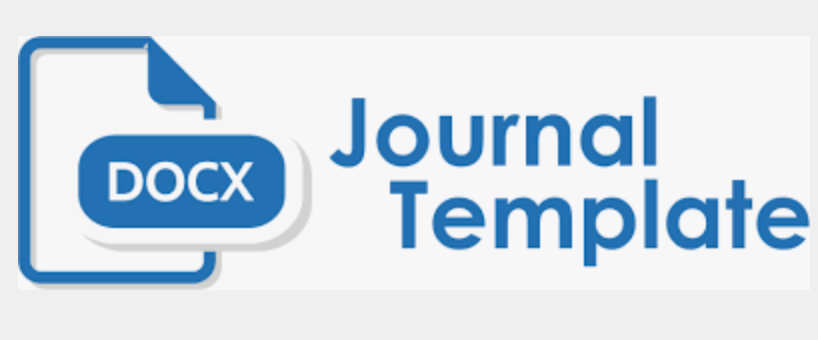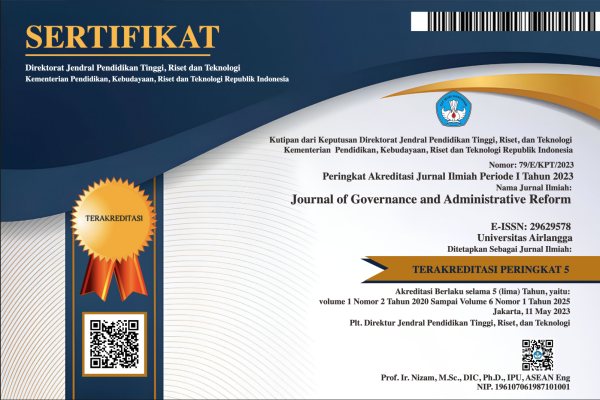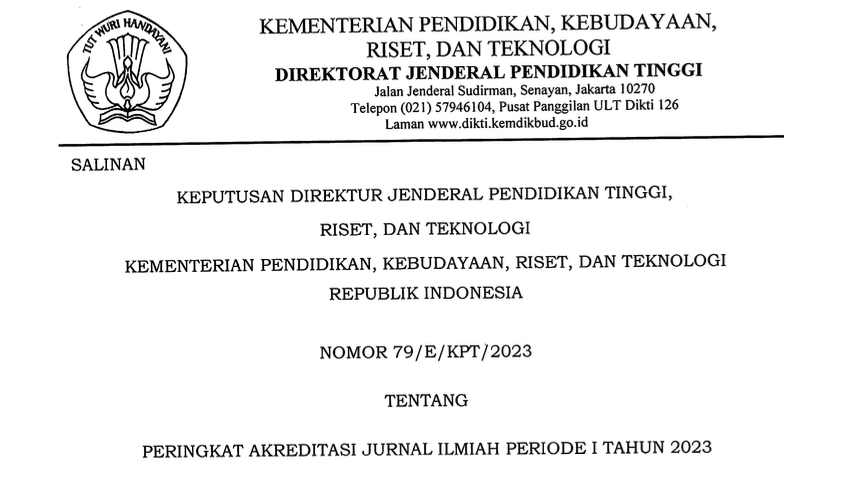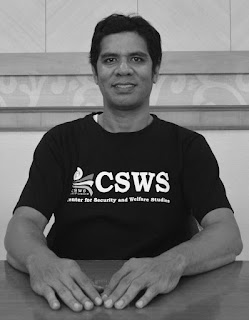Shifting Regulatory Paradigms: The Impact of Indonesia’s Job Creation Law on Migrant Worker Protection and the Role of State, Employers, and Labor Organizations (2020-2023)
Downloads
Abstract
This study examines the evolving production regime within the labor process of Indonesian migrant workers, focusing on regulatory transitions from the 2017 Law on the Protection of Indonesian Migrant Workers (PPMI Law) to the Job Creation Law (2020–2023). It addresses persistent structural challenges confronting migrant workers and investigates the shifting power relations among labor, the state, and employers in managing these challenges. Based on in-depth interviews and a comprehensive review of relevant literature, the study identifies key structural constraints experienced by workers, the transformation of labor governance, the responses of labor organizations, and the structural power exercised by business actors. The findings indicate that Indonesian migrant workers are increasingly subject to complex structural vulnerabilities, stemming from a regulatory shift from state-centered protection under the PPMI Law to a market-oriented governance framework advanced by the Job Creation Law. A defining feature of this transition is the debureaucratization of migrant worker placement, signifying a broader alignment with neoliberal labor market principles. Business associations, particularly the Indonesian Migrant Worker Placement Companies (P3MI), have played an influential role in shaping this regulatory transformation through both structural and instrumental power. Conversely, labor organizations have resisted the commodification of migrant labor, advocating for the preservation of protective mechanisms. The study concludes that the reconfiguration of the regulatory framework governing Indonesian migrant workers results from the dynamic interplay of labor, state, and employer interests. The oscillation between protectionist and market-oriented regulatory models illustrates the contested nature of labor governance. By situating these developments within broader power structures, the study contributes to a nuanced understanding of the structural challenges shaping transnational labor migration from Indonesia.
Keywords: Indonesian migrant workers; regulatory politics; employers; the state.
Abstrak
Penelitian ini bertujuan untuk menelaah pergeseran rezim produksi dalam proses kerja buruh migran Indonesia akibat perubahan regulasi dari UU PPMI tahun 2017 ke UU Cipta Kerja (2020-2023). Penelitian ini mengangkat permasalahan struktural yang dihadapi oleh buruh migran Indonesia dan relasi antara buruh, negara, dan pengusaha yang berkaitan dalam persoalan struktural tersebut. Dengan menggunakan teknik wawancara mendalam dan studi literatur kami memetakan permasalahan struktural yang dialami buruh migran Indonesia, pergeseran paradigma produksi, respon organisasi-organisasi buruh, dan kekuatan struktural kelompok bisnis. Hasil penelitian ini menemukan adanya persoalan struktural yang begitu kompleks dihadapi oleh buruh migran Indonesia di tengah pergeseran paradigma produksi dari berbasis perlindungan oleh birokrasi dan negara pada UU PPMI tahun 2017 menjadi berbasis pada kepentingan pasar dan debirokratisasi perusahaan jasa penempatan buruh migran yang tercermin dalam UU Cipta Kerja. Penelitian ini juga menguraikan praktik kekuatan struktural serta instrumental kelompok asoasi bisnis (P3MI) dalam pergeseran paradigma regulasi, dengan perlawanan oleh kelompok buruh yang menolak paradigma regulasi berbasis pasar yang ada dalam UU Cipta Kerja. Kesimpulannya, secara faktual dari kekuatan buruh, negara, dan pengusaha telah saling mempraktikkan kekuasaannya dan kepentingannya satu sama lain yang berdampak pada paradigma regulasi proses kerja buruh migran Indonesia antara UU PPMI tahun 2017 dan UU Cipta Kerja. Penelitian ini berimplikasi terhadap penjelasan persoalan struktural yang dihadapi oleh buruh migran Indonesia dalam kaitannya dengan tarik-menarik kepentingan regulasi serta reduksi-amplifikasi peran antara negara, buruh, dan pengusaha.
Kata kunci: buruh migran Indonesia; politik regulasi; pengusaha; negara.
Alysa. (2021). Polemik UU Cipta Kerja terhadap Perlindungan Pekerja Migran Indonesia. https://www.hrwg.or.id/wp-content/uploads/2021/12/Polemik-UU-Cipta-Kerja-dan-Perlindunga-PMI-final.pdf
Arista, W., Emirzon, J., & Apriandi, M. (2019). Hak-hak Konstitusional Buruh Migran Indonesia di Malaysia. Jurnal Ilmu Hukum, 6(1).
Aspataki.com. (2019a, December 9). Langkah Cerdas Aspataki ke MK untuk Mengakhiri Perdebatan. Aspataki.Com. https://www.aspataki.com/2019/12/langkah-cerdas-aspataki-ke-mk-untuk.html
Aspataki.com. (2019b, December 19). Aspataki ke MK tanpa Sedikitpun Niatan untuk Melawan Pemerintah. Aspataki.Com. https://www.aspataki.com/2019/12/press-release-aspataki-giat-ke-mk-bukan.html
Aswindo, M., & Ras, A. R. (2020). Omnibus Law Cipta Kerja dan Prospek Ketahanan Pekerja Migran Indonesia. Jurnal Kajian Stratejik Ketahanan Nasional, 3(2), 47–62.
Babic, M., Huijzer, J., Garcia-Bernardo, J., & Valeeva, D. (2022). How does business power operate? A framework for its working mechanisms. Business and Politics, 1–18.
Barrow, C. W. (1993). Critical Theories of The State. The University of Wisconsin Press.
BP2MI. (2024). Statistik Layanan Penempatan Pekerja Migran Indonesia. BADAN PELINDUNGAN PEKERJA MIGRAN INDONESIA. https://bp2mi.go.id/dashboard-publik
Burawoy, M. (1985). The Politics of Production. Verso.
DA, A. T. (2020, November 24). Hapus Syarat Perusahaan Penempatan, UU Cipta Kerja Dinilai Lemahkan Perlindungan Buruh Migran. Hukum Online. https://www.hukumonline.com/berita/a/hapus-syarat-perusahaan-penempatan--uu-cipta-kerja-dinilai-lemahkan-perlindungan-buruh-migran-lt5fbba48877c13/?page=2
DPN SBMI. (2020, October 7). Tata Kelola Perizinan P3MI dirapikan UU PPMI, Diobrak-Abrik Omnibus Law UU Ciptaker. Dewan Pimpinan Nasional Serikat Buruh Migran Indonesia. https://sbmi.or.id/siaran-pers-sbmi-tata-kelola-perizinan-p3mi-dirapikan-uu-ppmi-diobrak-abrik-omnibus-law-uu-ciptaker/
Fairfield, T. (2015). Structural power in comparative political economy: perspectives from policy formulation in Latin America. Business and Politics, 17(3), 411–441.
Farisa, F. C. (2020, November 26). Uji Materi UU PPMI Ditolak, Migrant Care: Monumental bagi Perlindungan Pekerja Migran Halaman all - Kompas.com. Kompas. https://nasional.kompas.com/read/2020/11/26/18234771/uji-materi-uu-ppmi-ditolak-migrant-care-monumental-bagi-perlindungan-pekerja?page=all
Fitra, S. (2020, October 6). Tawaran Kemudahan Berusaha dan Perizinan dalam UU Cipta Kerja - Industri Katadata.co.id. Kata Data. https://katadata.co.id/berita/industri/5f7cb392aecc8/tawaran-kemudahan-berusaha-dan-perizinan-dalam-uu-cipta-kerja
Fuchs, D., & Lederer, M. M. (2007). The Power of Business. Business and Politics, 9(3).
Haliza, S. N., Amanda, D., & Marlina. (2023). Pengupahan PT Sumber Izumi Mas Perkasa: UU Ketenagakerjaan Tahun 2003 dan UU Cipta Kerja tahun 2023. Jurnal Pengabdian Kepada Masyarakat Nusantara, 5(1), 5–12.
Hanri, M., Sholihah, N. K., & Satyagraha, I. P. B. (2024). Kajian Perlindungan Sosial dan Tenaga Kerja.
Hillman, A. J., & Hitt, M. A. (1999). Corporate Political Strategy Formulation: A Model of Approach, Participation, and Strategy Decisions. The Academy of Management Review, 24(4), 825–842.
Kemen P2MI. (2025a). Data Penempatan Dan Perlindungan Pekerja Migran Indonesia Periode Januari-Februari 2025. Kemen P2MI. https://bp2mi.go.id/statistik-detail/data-penempatan-dan-pelindungan-pekerja-migran-indonesia-periode-januari-april-2025
Kemen P2MI. (2025b, March 17). Kementerian P2MI Gelar Edukasi Keuangan bagi Pekerja Migran Indonesia di Hong Kong. Kementerian Perlindungan Pekerja Migran Indonesia. https://www.bp2mi.go.id/index.php/berita-detail/kementerian-p2mi-gelar-edukasi-keuangan-bagi-pekerja-migran-indonesia-di-hong-kong
Komnas Perempuan. (2020). Dampak UU Cipta kerja terhadap Perempuan Pekerja Migran. Komisi Nasional Perempuan. https://komnasperempuan.go.id/kabar-perempuan-detail/dampak-undang-undang-cipta-kerja-terhadap-perempuan-pekerja-migran-indonesia
MK RI. (2020). Putusan Mahkamah Konstitusi Nomor 83/PUU-XVII/2019. In Mahkamah Konstitusi Republik Indonesia.
Oso, L., Kaczmarczyk, P., & Salamońska, J. (2022). Labour Migration. In P. Scholten (Ed.), Introduction to Migration Studies: An Interactive Guide to the Literatures on Migration and Diversity. Springer.
Qiptiah, D. M., Umar, M., & Sudiantini, D. (2024). Pemberdayaan Pekerja Migran Indonesia (PMI) Negara Penempatan Malaysia Untuk Peningkatan Kapasitas dan Persiapan Kemandirian. Journal of Community Development, 5(2).
Sabates-Wheeler, R., & Waite, M. (2003). Migration and Social Protection: A Concept Paper. https://www.issa.int/sites/default/files/external-references/files/GED-08be-2sabateswheeler-3177.pdf
SBMI, & Migrant Care. (2020, November 25). Siaran Pers Bersama: Putusan Mahkamah Konstitusi RI terhadap Uji UU 18/2017 Menyelamatkan Ancaman Kemunduran terhadap Perlindungan Pekerja Migran Indonesia. Migrant Care. https://migrantcare.net/2020/11/putusan-mahkamah-konstitusi-ri-terhadap-uji-uu-18-2017-menyelamatkan-ancaman-kemunduran-terhadap-perlindungan-pekerja-migran-indonesia/
Serikat Pekerja Nasional. (2021, January 11). Dampak UU Cipta Kerja Terhadap PMI. Serikat Pekerja Nasional. https://spn.or.id/dampak-uu-cipta-kerja-terhadap-pmi/
Solidaritas Perempuan. (2020, November 11). UU Ciptakerja “Ketiadaan Negara Hadir untuk Melindungi Pekerja Migran Indonesia!” | Solidaritas Perempuan. Solidaritas Perempuan. https://solidaritasperempuan.org/uu-ciptakerja-ketiadaan-negara-hadir-untuk-melindungi-pekerja-migran-indonesia/
Undang-Undang No. 18 tahun 2017 tentang Perlindungan Pekerja Migran Indonesia (18). (2017).
Wahyudi, R. (2020, October 26). Dampak RUU Cipta Kerja terhadap Pekerja Migran Indonesia - Pusat Sumber Daya Buruh Migran. Buruh Migran. https://buruhmigran.or.id/2020/10/26/dampak-ruu-cipta-kerja-terhadap-pekerja-migran-indonesia/
Copyright (c) 2025 Authors

This work is licensed under a Creative Commons Attribution-ShareAlike 4.0 International License.
Jurnal Governance and Administrative Reform by Unair is licensed under a Creative Commons Attribution-ShareAlike 4.0 International License.
1. The journal allows the author to hold the copyright of the article without restrictions.
2. The journal allows the author(s) to retain publishing rights without restrictions
3. The legal formal aspect of journal publication accessibility refers to Creative Commons Attribution Share-Alike (CC BY-SA).






















